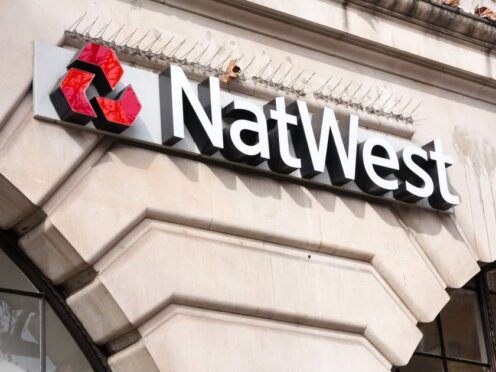The Government has confirmed plans to start selling its stake in NatWest to everyday investors as early as the summer, as it whittled down its shareholding in the bank further on Wednesday.
It wants to fully hand over ownership of the bank by 2025 to 2026.
The plans were confirmed in the spring Budget, delivered by Chancellor Jeremy Hunt in the House of Commons on Wednesday.
The Treasury said: “As part of its long-standing ambition to return NatWest to private ownership, and to support the development of a savings and investment culture as well as the UK’s wider capital markets, the Government intends to deliver a sale of part of its NatWest shareholding to retail investors.
“A sale would take place this summer at the earliest, subject to supportive market conditions and achieving value for money for the taxpayer.”
The sale was first announced by Mr Hunt during his autumn statement last year, indicating it would happen before November 2024.
It comes about 15 years after the UK Government bailed out NatWest Group, previously known as the Royal Bank of Scotland, for nearly £46 billion during the global financial crisis.
It has since been whittling down its stake from a peak of 84% in 2009.
It now owns about 31.85% having sold another chunk of shares on Wednesday.
A spokesman for NatWest said: “Any decisions around share sales are a matter for the Government.
“We welcome the continued commitment to returning NatWest Group to private ownership; this is a shared ambition and we believe it is in the best interests of the bank and our shareholders.”
Susannah Streeter, head of money and markets at Hargreaves Lansdown, said there is likely to be “strong interest” in the share sale.
“Giving retail investors the opportunity of a slice of ownership in NatWest is a welcome move, given that they have been left out of previous sales, which have been reserved for institutional investors.
“Prospects are looking up for the bank after a tumultuous year when it lost both its CEO and chair and the valuation has been under some pressure ever since.
“But with an attractive entry point, some easing headwinds and strong capital levels, the bank’s current situation is likely to spark enthusiasm.”
